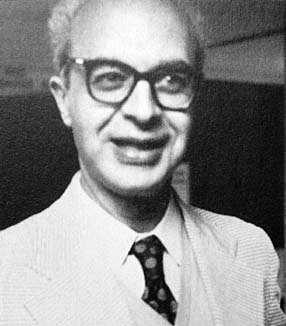
Georg Kreisel (1923-2015)
Georg Kreisel (September 15, 1923 in Graz – March 1, 2015 in Salzburg) was an Austrian-born mathematical logician who studied and worked in Great Britain and America. Kreisel came from a Jewish background; his family sent him to England before the Anschluss, where he studied mathematics at Trinity College, Cambridge and then, during World War II, worked on military subjects. After the war he returned to Cambridge and received his doctorate. He taught at the University of Reading until 1954 and then worked at the Institute for Advanced Study from 1955 to 1957. Subsequently he taught at Stanford University and the University of Paris . Kreisel was appointed a professor at Stanford University in 1962 and remained on the faculty there until he retired in 1985. Kreisel worked in various areas of logic, and especially in proof theory, where he is known for his so-called "unwinding" program, whose aim was to extract constructive content from superficially non-constructive proofs. Kreisel was elected to the Royal Society in 1966; Kreisel remained a close friend of Francis Crick whom he had met in the Royal Navy during WWII. While a student at Cambridge, Kreisel was the student most respected by Ludwig Wittgenstein . Ray Monk writes, "In 1944--when Kreisel was still only twenty-one--Wittgenstein shocked Rush Rhees by declaring Kreisel to be the most able philosopher he had ever met who was also a mathematician." Kreisel was also a close friend of the Anglo-Irish philosopher and novelist Iris Murdoch . They met at Cambridge in 1947 during Murdoch's year of study there. Peter Conradi reports that Murdoch transcribed Kreisel's letters into her journals over the next fifty years. According to Conradi, "For half a century she nonetheless records variously Kreisel's brilliance, wit and sheer 'dotty' solipsistic strangeness, his amoralism, cruelty, ambiguous vanity and obscenity." Murdoch dedicated her 1971 novel An Accidental Man to Kreisel and he became a (partial) model for several characters in other novels, including Marcus Vallar in The Message to the Planet and Guy Openshaw in Nuns and Soldiers . After retirement Kreisel lived in Salzburg, Austria. He wrote several biographies of mathematicians including Kurt Gödel , Bertrand Russell and Luitzen Egbertus Jan Brouwer .